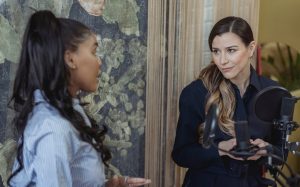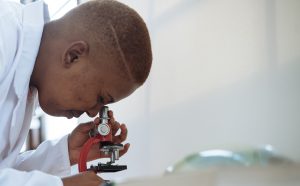Interview skills are pivotal for long-term career success, regardless of whether you’re a seasoned C-Level executive or a recent college graduate. Understanding and leveraging your unique strengths in an interview setting can significantly boost your career prospects. This is where tools like the HIGH5 strengths assessment become invaluable. By identifying your inherent talents, HIGH5 empowers you to articulate your value proposition more effectively in interviews. It’s not just about knowing how to succeed in interviews; it’s about showcasing your authentic self and aligning your natural strengths with potential roles. This strengths-based approach can transform your interview performance, setting you apart in today’s competitive job market.
Those who are able to make great first impressions on their interviews often go on to achieve more in their careers.
Plus, they are more likely to stay motivated and passionate at work. Unfortunately, many people do not recognize the importance of interviews to their long-term careers. They do not take the interview process seriously enough, often leading to missing out on landing one’s dream job.
Thankfully, there are ways to boost your interview skills. In this article, we will discuss how to build interview skills and why doing so is immensely beneficial.
What Are Interview Skills?
Interview skills encompass the unique traits that showcase your suitability for a desired role to potential employers. These skills are crucial in helping you achieve your interview goals. To truly excel in interviews, it’s essential to understand your inherent strengths. The HIGH5 strengths assessment can be an invaluable tool in this process, helping you identify and articulate your unique abilities. By leveraging your natural talents, you can present a more authentic and compelling case for why you’re the ideal candidate, setting yourself apart in the competitive job market.
Most often, that goal would be to land your dream job. But, they could also help you uncover other job opportunities that are even more appealing than your current dream job.
Interview skills help you with a wide range of abilities. This means they can impact more facets of your career besides just the interview session. Employers will take note of your interview skills when they consider giving you a job.
They notice how you communicate, your non-verbal body language, tone, and much more when getting a full picture of your interview skills.
Pro Tip From HIGH5
Leverage your HIGH5 strengths in your interviews. For example, if ‘Strategic Thinking’ is one of your top strengths, showcase this by discussing how you’ve applied strategic approaches to solve problems in previous roles.
Why Is it Important To Recognize Interview Skills & Their Benefits?
Recognizing and understanding your interview skills is crucial, as these abilities extend far beyond the interview room, significantly impacting your entire career trajectory. By utilizing tools like the HIGH5 strengths assessment, you can gain deep insights into your unique strengths, which form the foundation of your interview skills. This self-awareness not only enhances your performance in job interviews but also empowers you to navigate various professional scenarios with confidence. The HIGH5 test helps you identify and leverage your natural talents, allowing you to present your best self consistently throughout your career journey.
They could mean the difference between working a job you dislike and acquiring your dream job for the rest of your life. With so much at stake, it is crucial to build up these skills.
Some of the top benefits that you can gain from focusing on building this skillset include:
- Reducing your interview stress and ensuring you stay calm during the interview.
- Boosting your odds of having a successful interview and acquiring your dream job.
- Increasing your passion and positive thoughts surrounding your career.
- When it comes to interviewing time, maintain your confidence. Keeping this confidence even after the interview is done.
- Staying motivated and goal-oriented even if you do not immediately get your dream job.
- Increase your self-awareness and help you balance confidence with humbleness so you do not become arrogant.
- Increases your ability to accept and learn from constructive criticism, thus helping you reach your goals.
- Reduces your risk of chronic mental health issues such as anxiety.
- Increases other related skill sets, such as your ability to think critically and stay organized.
- Boosts your ability to implement feedback efficiently.
Pro Tip From HIGH5
Use your HIGH5 strengths profile to craft compelling stories that demonstrate your skills in action. This narrative approach can make your interview responses more engaging and memorable.

10 Examples of Crucial Interview Skills
There are many different skills that make up the category of interview abilities. Each of these skills is slightly different, but they all help you succeed when it comes time for the interview and beyond.
If you are considering focusing on building your interview skills, here are a few of the top skills you should consider looking into:
Diligent Preparation And Time Management
Being prepared for an interview reflects positively on you as a job candidate. Interviewers can easily sense if you are well prepared, so ensure you truly take the time to “study” for your interview. Look over the job description to see some of the skills you can bring up.
Note how you meet the requirements. Spend at least an hour, but preferably more, getting ready for the interview. Preparation also includes getting physically prepared, such as wearing appropriate clothing.
Research
This skill is somewhat related to preparation, but a few elements set it apart. Research is the careful analysis of what the company needs in a candidate.
It is the reviewing of the job description, looking through the company’s website, seeing their social media, and if you can, speaking to prior employees. Try to find out as much as you can about the job you are applying for. This will help you stand out from the crowd.
Communication Skills
Communication is a skill that is nearly universally important. So, it is no surprise that knowing how to effectively communicate boosts your interview skills. Communication involves more than just talking, though.
It is also listening to the interview, knowing when to make small talk, being aware of your nonverbal gestures, ensuring you use the correct tone, avoiding filler language, and much more.
Active Listening
Active listening is so important, that it deserves a separate section on this list. Even if you master effective communication, if you do not listen, you will not get the maximized odds of acquiring your top job. Do not be afraid to ask questions or clarify things.
This will allow the interviewer to notice that you are thoroughly engaged at the moment. It makes you seem deeply interested in the job, too. Try not to change topics too quickly and change your communication and listening based on the cues of the interviewer.
Professional Conduct
Imagine a job candidate who uses bad language, improper posture, and dresses in a very casual way for a professional interview. All of these factors combined can make the interviewer view the candidate in a negative way. Try to wear clothes that are comfortable, but still not overly colorful, dirty, or otherwise unprofessional. Prepare your hair, nails, and more to add the final touches of professionalism.
Being On Time
Perhaps one of the most simple and straightforward of these skills, being on time is a great way to make a good first impression. It shows that you are committed and know how to plan in advance.
The time you arrive may seem out of your control but recognize that proper preparation can help you nearly guarantee that you can get to the interview on time. To save some time, plan your day the night before. Who will drive you, and what will you wear? Ensure these answers are answered a night in advance.
Confidence
During interviews, many individuals struggle with staying confident. They do not want to seem too arrogant or feel like they are bragging. However, there is a difference between bragging and staying confident. Be honest with yourself and the interviewer. Specifically, mention strengths that you know you have and can prove. Mention your top achievements, and explain why they are meaningful to both you and your new potential team.
Asking Questions And Being Engaged
Being engaged shows that you are deeply interested in the job. Interviewers are more likely to hire those who are deeply interested in their field of work because it shows they are passionate. Asking questions also shows you have been actively listening to the interviewer, which further increases the appeal of this skill.
Writing The Proper Resume
While your first in-person interactions with an interviewer do make a meaningful impact on them, your resume is the accurate first impression you make on them.
If you have a well-written, organized, and specific resume, the interviewer will already be heading into the discussion with a more positive mindset and with the inclination of hiring you. This can ease some of the tension in the interview and give you additional confidence.
Politeness And Respect
If you show politeness and respect toward the interviewer, they will likely show the same politeness and respect toward you. It creates a more positive interview atmosphere. Plus, individuals who are impolite (for instance, those who interrupt the interviewer) are less likely to make a positive impact on the interviewer.
In addition, you should stay away from painting your prior employers or employees in a bad light. It simply seems negative and a bit rude to do so behind their backs.

How To Identify & Master Interview Skills
Now that you’re familiar with the diverse range of interview skills and their benefits, you’re likely eager to discover and develop your own unique set of abilities. This is where the HIGH5 strengths assessment becomes an invaluable resource. Unlike generic interview guides, the HIGH5 test provides a personalized strengths profile, offering deep insights into your natural talents that can be leveraged in interview settings. By understanding your inherent strengths, you can tailor your interview preparation to highlight these qualities, giving you a significant advantage. The HIGH5 test not only identifies your interview skills but also provides a comprehensive strengths profile, empowering you to approach interviews with authenticity and confidence.
Every person has a unique set of interview abilities. So, before you buy a plethora of popular “how to master the interview” books, consider the following first.
Instead of spending a plethora of time and money finding these resources, or waiting for years to naturally find your interview skills, consider taking a simple online test. These tests are quite accurate and can give you insights into your unique list of interview abilities.
One such assessment is the HIGH5 test. This assessment will not only give you a list of your interview skills but also give you your entire strengths profile. Plus, the test is completely free and can be finished within one sitting.
There are a few other ways to find your current interview abilities. For instance, some interviewers will give you feedback a few weeks after the interview is over. Take this constructive criticism seriously, especially if you do not acquire the job.
You can also note what makes you feel the most confident when you are in an interview. Whatever strategy helps you feel more confident likely involves your strengths to some degree. Nonetheless, this form of self-reflection will be a bit less accurate than simply taking the HIGH5 test.
Pro Tip From HIGH5
After taking the HIGH5 test, create a ‘strengths journal’. Regularly record instances where you’ve successfully applied your top strengths in professional settings. This practice will help you articulate your skills more effectively during interviews.
How To Improve Interview Skills in The Workplace
After you realize what your strengths are, you may be wondering: what next? Most people begin to work on improving their strengths. They focus on finding the best ways to optimize the way they use their interview abilities in the workplace. There are numerous ways you could do this.
One general rule to keep in mind is that the more you practice your interview skills, the better. If you know you will be leaving your current job in search of a new one, ask a trusted coworker to give you a mock interview. This can help you with preparation and naturally accentuates the skills you already have.
In addition, try to plan and stay organized before attending an interview. In fact, planning and organization skills are useful even if you are not interested in finding a new job. They help boost your productivity as well as focus, and they decrease anxiety and negativity.
In the workplace, try to take as many opportunities as you can to practice using your strengths. Instead of viewing the skill improvement process as a way to overcome weaknesses, see it as an opportunity to grow your strengths. This will allow you to stay more positive and confident.
If you know communication is one of your key strengths, do not be afraid to speak up more during meetings, for example. Although a meeting is not quite the same setting as an interview, it will help you refine your communication skills, which can later be applied to the interview as well.
Pro Tip From HIGH5
Align your daily tasks with your HIGH5 strengths. If ‘Relationship Building’ is a top strength, volunteer for projects that involve cross-team collaboration. This will naturally enhance your interpersonal skills, which are crucial in interviews.

How To Highlight Interview Skills In Resume & Job Interview
After you work on your skills for some time and refine them, you will probably get interested in showing them off. This is only natural.
Of course, you would want others to be aware of your hard work and newly developed abilities! However, highlighting your skills on a resume or in an interview could be more difficult than it sounds.
Many people think it is straightforward: just include interview skills in the list of your skills. However, keep in mind that these interviewers do not know you. They cannot simply trust your word on something as important as interview skills. Instead, you must truly show you have these skills.
While most skills can be listed under the description of your prior jobs, consider including interview skills a bit differently.
Specify the type of interview skill (communication, punctuality, professionalism, etc) before listing it under the job description. Then, write how that interview skill benefited the team you previously worked in. If you have quotes of statistics, especially from past interviewers, include them.
Once you are in a job interview, it is your time to shine. Show them you are prepared by being ready to answer any question they give you. Ensure they know you are professional and punctual by getting there on time and wearing professional clothing.
Listen carefully, ask questions when you need to, pay attention to your body language, and show your enthusiasm for the job as well as respect for the interviewer. Be polite, too. A simple thank you and firm handshake at the end of an interview can go a long way.
How To Make an Interview Checklist
Organization and preparation are key to doing well in an interview. One commonly used tool to boost organization is the checklist. A checklist can help you stay motivated as you work, too. Below, you can find what steps can make you the most prepared for an interview.
This is just a sample checklist. If you have other steps, add them in the appropriate location. The best checklist will include the physical items you need to bring as well as mental reminders that help your strengths shine.
Ensure that you arrive early to the interview. This will give you some time to settle in and decrease the likelihood of you being late. Being early can also make individuals feel more in control of their time.
Next, ensure you are wearing professional clothing. Double-check that you have any additional materials necessary to succeed in the interview (if something comforts you before the interview, consider bringing it). Along with those items, bring more than one copy of your resume just in case you lose one.
Try to bring a pen and pencil as well. This can be useful if you are taking notes during an interview. Taking notes shows you are interested in the work, so it may be a good idea. If you are parking in a paid location or using valet, take some cash with you too.
Practice answering potential questions before you arrive at the interview location. You can Google some of the top questions asked by a certain company or relevant questions for your industry. Prepare the general interview questions, too, like: “Why are you right for this job?”.
If you can create a handwritten thank you note, definitely consider bringing that along with you. It will give an extra touch to the end of the interview which makes it more positive and memorable.
Finally, after the interview is over, wait for a response. If a response does not show up within a few weeks, consider following up with the interviewer via email.
Interview Skills FAQs
What are the 5 top interview techniques?
Every job candidate has a unique way of approaching interviews. In general, there are five main strategies that successful candidates will use. First, many use the STAR technique, which decreases anxiety and stress. STAR stands for situation, task, action, and result.
Others may opt for simply focusing on factors in their control, like how much they prepare or what time they leave their home. Thirdly, many individuals practice answering commonly asked questions. Individuals also experiment with their sense of confidence and try to stay humble while also highlighting their strengths.
Finally, some of the best job candidates will also ask insightful questions to show they are interested and engaged.
What skills should the interviewer have?
A job interviewer needs a specific skill set to truly flourish at their work. They must be able to control their emotions since sometimes, candidates can be rude or disrespectful. They should also be friendly and aim to bring out the best in every candidate.
Being too threatening could cause companies to pass on hiring high-quality candidates. Job interviewers must also have strong interpersonal skills and be able to actively listen to candidates. Finally, they should also know how to compare a candidate’s skills to the ideal candidate for a certain position.
How do I describe my skills in an interview?
When trying to describe your skills in an interview, be very specific. Give background on how you developed the skill, as it helps give the interviewer context and additional proof that you truly have a skill. Use action words to illustrate how you used the skill in action at your prior workplace.
Highlight how you are using that skill to benefit your prior team. If you have any statistics to back up this statement, bring them up.




